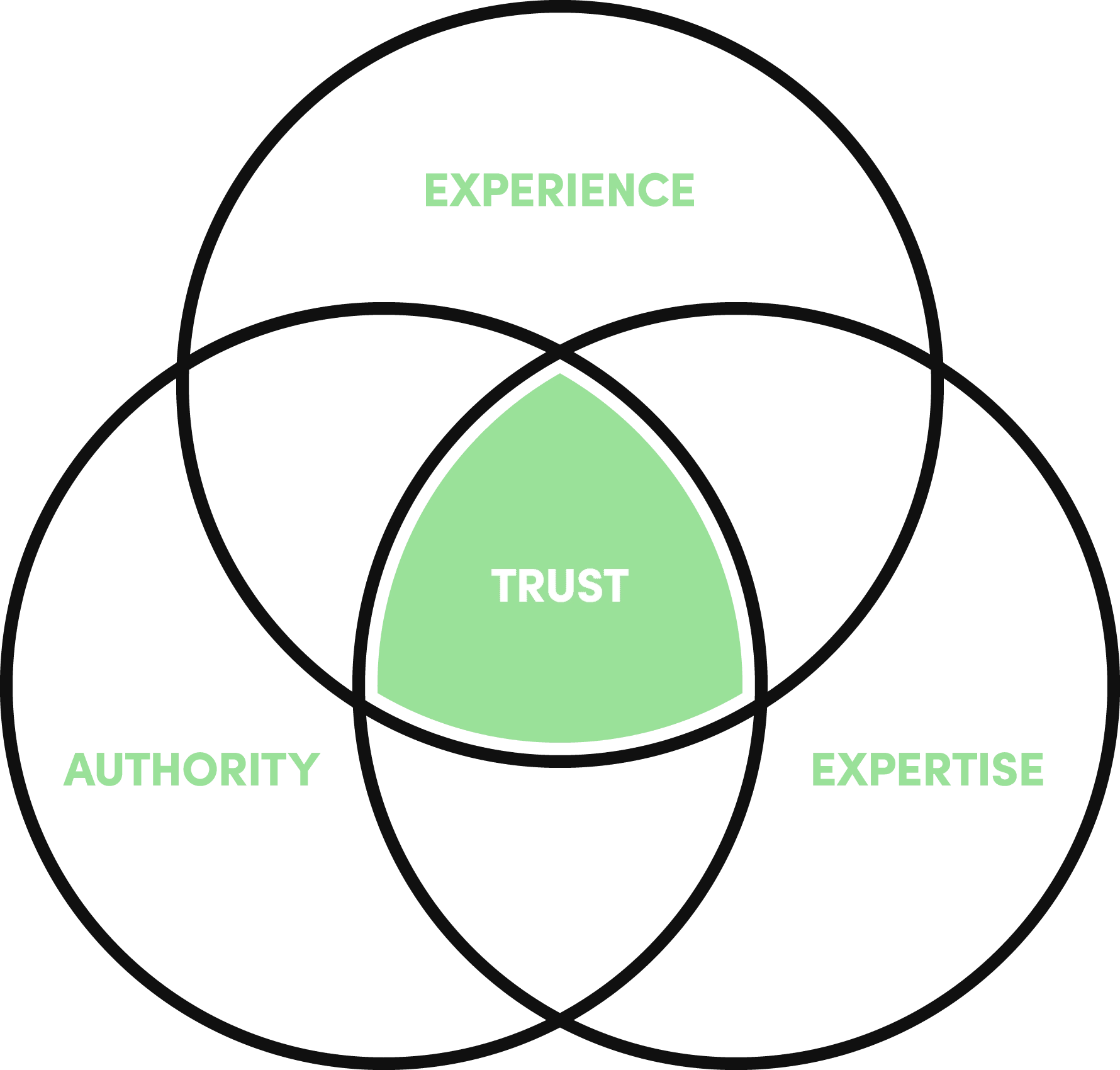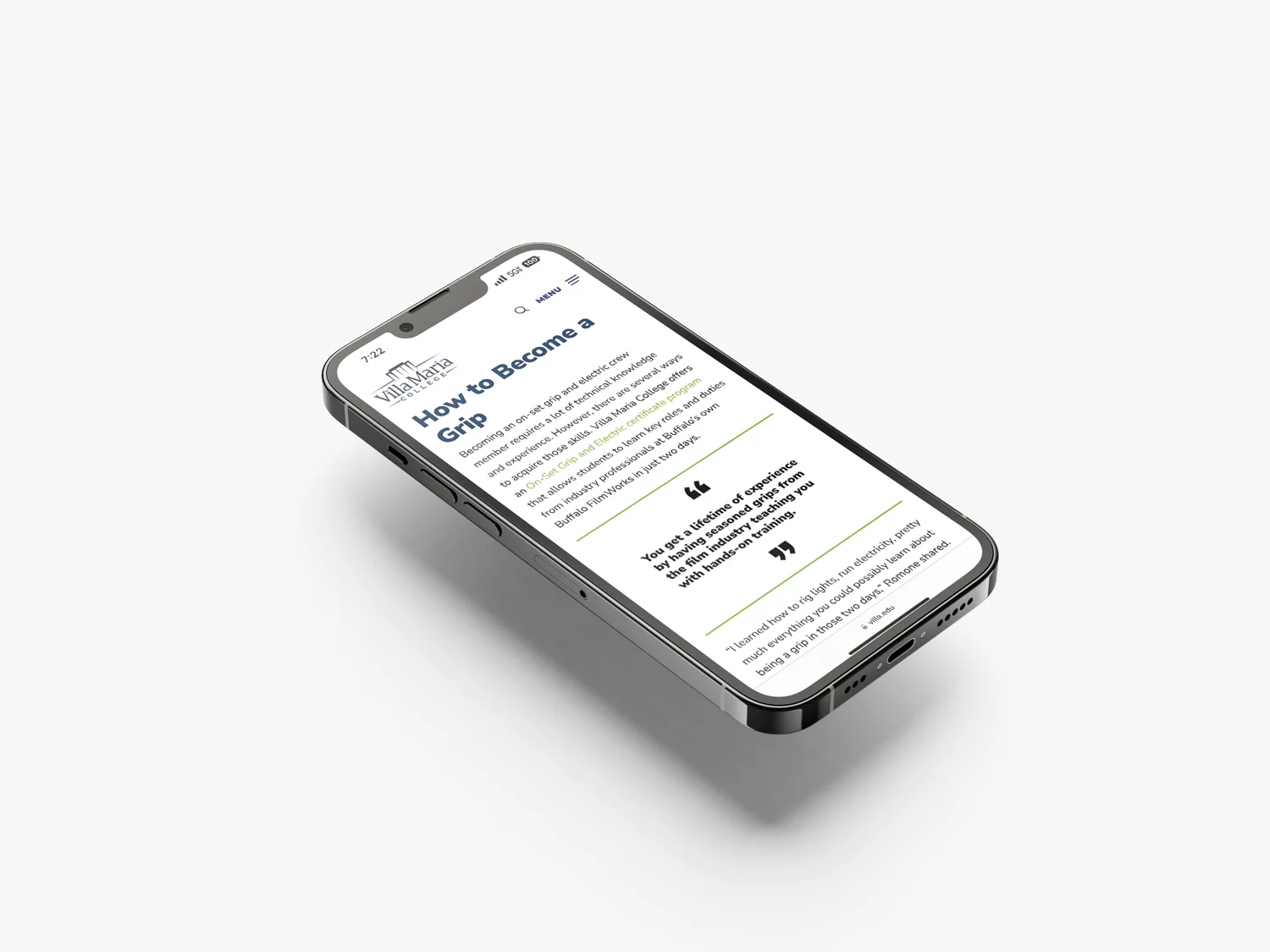These days, EEAT is one of the biggest buzzwords in SEO and content creation. While Google isn’t worried about what you’re having for dinner, it is constantly concerned with your website’s Experience, Expertise, Authoritativeness and Trustworthiness. EEAT is a pretty big deal to Google, but we think that’s a really good thing. We can’t blame the search engine for wanting to give searchers high-quality results and nudging businesses toward creating content that fits the bill.
What does this mean for your website? If you’re serious about SEO, EEAT should play a big role in your content strategy.

What is EEAT?
You may know what the letters stand for, but what is EEAT? Essentially, Google is looking for high-quality content that delivers trustworthy answers to searchers’ questions. If you want your site to rank, you have to show Google your brand is a reputable online authority with legitimate, reliable content that offers value to website visitors.
Where Does EEAT Come From?
The Google Search Quality Rater Guidelines introduced in 2014 dive into the details of EEAT and why they’re so important. Although it might seem like common sense to say that high-quality content should be able to demonstrate experience, expertise, authoritativeness and trustworthiness, Google’s guidelines can be confusing.
Your online content should address all four EEAT components to give yourself the best chance of making a good impression on Google and your audiences. Even one page ranking well in relevant Google search results can boost overall website performance. With more visibility from well-ranking pages (and a website optimized for user experience and conversions) should come more engagement and leads.
Quality Rating Factors
Experience
Experience is the newest addition to EEAT. The quality rating factor was introduced in late 2022 around the time generative AI burst in popularity. This wasn’t a coincidence, with generative AI giving the masses the ability to create content on any subject in a matter of seconds—without any personal experience of their own. Google’s inclusion of experience cemented its stance on the value of having first-hand or real-world life experience on the topic you’re writing about.
Expertise
Expertise in content uses credible sources, references and links to bring accurate information to audiences. Anything written on your website should establish credibility and expertise in your field. If all the content on your website was fact-checked by a third-party expert in your industry, would it pass the test? According to Google, it should.
Authoritativeness
Authoritativeness is all about owning your credentials and reputation. Your company and your employees know their stuff. Sharing that information on your website allows search engines to recognize the authority you have in your field. That authority can connect you with relevant information-seekers.
Trustworthiness
Trust is essential if you want to convince website visitors to become customers. Experience, expertise and authority all contribute toward establishing your business as trustworthy. Clear, credible content and contact information shows your visitors that you care about what you say and are ready to prove it to them.
How to Strengthen Your Website’s EEAT
Google’s Quality Rater Guidelines and how they define EEAT impact your website’s ranking ability. So, you should be making it a priority to create and maintain content around these standards. Fortunately, there are a lot of ways you can incorporate EEAT into your SEO strategy.
Focus on Content Quality
In 2022, Google launched its helpful content update to reward people-first content. Essentially, that means creators should be focused on writing interesting and original content that is of use to their audiences. Of course, this might seem like a given. But there was a time not so long ago when marketers wrote content specifically to rank for search engines. Now, Google has made it a point to no longer reward that strategy, instead prioritizing content written by people for other people. As you emphasize quality, remember to include elements of EEAT in every piece of content. Use topic clusters to organize content for SEO and authority building, and supplement your content with reliable sources, especially first-person when you can.
Keep Content Up to Date
To stay top of mind with your readers, your content needs to be current. There are three ways to keep your content up to date: writing new posts on a regular basis, conducting audits and refreshing previously posted content. Using a content calendar is a simple yet effective way to plan and maintain your strategy.
Over the course of every year, take some time to prune your content. This process involves looking at your entire blog catalog to track the traffic and engagement each post receives. Consider opportunities to update content using new stats, case studies or other related resources to ensure that it remains useful to readers. If there are any pieces of content that aren’t receiving traffic or don’t feel like a good representation of your authority, don’t be afraid to remove them.
Include Author Bios on Content
Google’s new emphasis on experience makes adding author bios to your content more important than ever. These snippets, which can be placed at the bottom of your content so they take up less real estate, establish credibility and transparency. Sharing your qualifications and professional background allows your readers to get to know the person behind the content, and how their credentials give them authority to speak on a subject.

Leverage Credible Sources
You need to solidify your blog and website as a go-to place for interested searchers to find reliable, informed insights. Integrating verifiable, valid sources into your content boosts your subject authority and shows your readers they can trust you for good information. Speaking with industry experts, citing research or including data-backed studies shows your commitment to providing the accurate information that readers are searching for. These sources instill readers’ and Google’s confidence in your content, which helps promote your content in search results.

Obtain and Showcase Reviews
Reviews from satisfied customers and clients serve as powerful testimonials of your experience and expertise. Featuring positive reviews on your website shows potential patrons the quality of your products and services. It serves as a track record of the good work that you’ve done, consistently meeting and exceeding your customers’ expectations.

